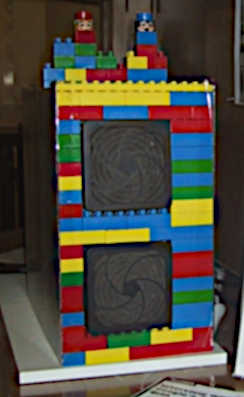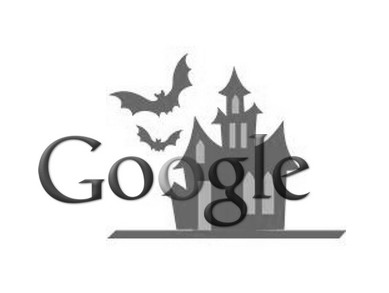| Google Turns 25 |
| Written by Sue Gee | |||
| Wednesday, 06 September 2023 | |||
|
At the end of September 2023 Google will officially celebrate its 25th birthday. In fact the day itself has already come and gone as it was on September 4th, 1998 that Google was founded by Larry Page and Sergey Brin. September 27th was the day on which Google Celebrating its quarter century. See Happy 25th Birthday, Google for our report on the day. From today's perspective it is difficult to imagine a world without either the Google search engine or the World Wide Web - a combination that has brought untold convenience to individuals, businesses and governments. Google's origins were at Stanford University where Page and Brin were both graduate students. Having embarked on a PhD in Computer Science, Larry Page was looking for a topic for his dissertation came up with the idea of exploring the mathematical properties of the World Wide Web and exposing its link structure as a huge graph. His supervisor, Terry Winograd, encouraged him to pursue the idea. Sergey Brin joined the project and, together with Scott Hassan, who wrote much of the code, and a fourth student, Alan Steremberg, they had developed a search algorithm, at first known as "BackRub", by 1996. That name was soon replaced by "Google", a play on googol, the number 10 to the power of 100, picked to signify that the search engine was intended to handle large quantities of information to fulfil the mission of organize the world’s information and make it universally accessible and useful. Within a few years the new name had entered common parlance and the verb "to google" was in the Merriam Webster Collegiate Dictionary and the Oxford English Dictionary in 2006. Contemplating Google's success at the time of its 20th birthday celebrations I Programmer opined: A big factor is that Google came out of nowhere and built something we didn't really know we needed. How can you make a pitch for something that isn't obviously better than what there already is. A second big factor is that Google's initial success was increased by the amazing response time the search had. Google was fast. Most of this speed came, and still comes, from custom hardware and clever ways of making use of said hardware. The first search engine was written in Java and Python and ran on a number of Sun and Linux machines. It consumed nearly half of Stanford's network bandwidth.
An original Google server, housed in a Lego cabinet! The date of September 4, 1998 is important as being the date Google was incorporated. This event was spurred on by the fact that angel investor Andy Bechtolsheim, co-founder of Sun Microsystems, had written a check to "Google Inc." for $100,000. Paperwork was quickly put in place so that the money could be accessed, allowing Brin and Page to move the enterprise into the residence in Menlo Park, California, in garage premises owned by Susan Wojcicki, who was to become CEO of YouTube.
Searching with Google became a lot easier with the launch of the Google Toolbar as a browser plug-in in December 2000 as it meant you could use it no matter what webpage you were currently viewing. Personalised search was rolled out in 2005 and in 2006 Google's search engine results pages were transformed with the introduction of Universal Search whereby traditional search results were integrated with results from News, Images, Video and other verticals. While it started as a one-product outfit, Google has added many strings to its bow. Google News was launched in beta in 2002, although it was January 2006 before it achieved GA status. Gmail came along in 2004, Google Maps in 2005 and it acquired YouTube in 2006. In 2003, five years after its founding, the company moved into a sprawling campus called the Googleplex.
Just before its its 10th anniversary in 2008 Google released the beta version of its own browser, Chrome. As a new browser it has to get established before it could overtake Firefox, which it did in 2011, and Microsoft's Internet Explore,achieved a year later. In the last couple of years Chrome has had between 60% and 70% of the Worldwide Desktop Browser Market share. We have Google to thank for Android and for Google Assistant - on your phone, on smart speakers, on your watch and on your TV. Google has also left a long trail of abandoned projects along the way. This is partly a function of its size but it also a very clear business strategy - innovate near and wide and if it doesn't pay off move on. Over the years we have vented frustration at this mindset which leads developers to embrace a new Google technology only to have the rug pulled out from beneath them and we even have a graphic to use when Google repeats this behavior, used twice last year for our reports Google Ditches Stadia and Google To Shut Cloud IoT Core:
At one point Google devoted a lot of its efforts to Robotics, acquiring Boston Dynamics and Schaft in 2013 as part of its effort to develop its own robotics division. While at Google Schaft won the 2013 DARPA Robot Challenge but in 2017 Alphabet, Google's parent company since October, 2015 sold on both Shaft and Boston Dynamics. In this year's extensive round of layoffs Alphabet shut down its Everyday Robots Team, the remaining remnant of its foray into robotics. This came shortly after our report Google X Robots Learning To Be Useful which detailed how more than 100 Everyday Robots had been put to work on Google premises, tiding chairs in meeting rooms, wiping refectory tables and separating trash from recyclable items. It also sacked the robots on the grounds of expense. In a blog post referring to Google's 25th birthday Sundar Pichai reflects on the past 25 years and in particular the period since he became Google CEO in 2015 and his vision that Google should pivot to be an AI-first company. He reminds us that in 2016 DeepMind's AlphaGo computer beat the Go world champion Lee Sedol in 2016 and in 2017 saw the publication of "Attention Is All You Need" aka the Transformer Paper, which created the neural network architecture that’s the foundation for most of the generative AI and large language models today. Google's Bard, trained on Google AI's LaMDA, Language Model for Dialogue Applications and now powered by PaLM 2, a 540-billion parameter LLM trained on a massive dataset of code and multilingual text spanning more than 100 languages, is Google's answer to ChatGPT. It added code generation in April 2023, giving it capabilities similar to GitHub's Copilot. In the same month Alphabet merged its two prominent AI research teams, Brain and DeepMind to form Google DeepMind which was widely interpreted as an attempt to compete with OpenAI in the ongoing race towards the development and adoption of general AI.
More InformationGoogle's 25th Birthday - Message From Sundar Pichai History of Google on Wikipedia From the garage to the Googleplex Related ArticlesGoogle's 25 Years of AI Progress How Google Took Over My Digital Life Google is 20, GNU is 35; Why No GNUgle? RankBrain - AI Comes To Google Search Google Founders Win New Test-of-Time Award Google Search Goes Semantic - The Knowledge Graph Google Needs a New Search Algorithm Boston Dynamics & Schaft Sold To SoftBank Google Adds Code Generation To Bard Google's Large Language Model Takes Control Google Announces MediaPipe Model Maker Can Google DeepMind Win At AI? Google Adds Code Generation To Bard To be informed about new articles on I Programmer, sign up for our weekly newsletter, subscribe to the RSS feed and follow us on Facebook or Linkedin.
Comments
or email your comment to: comments@i-programmer.info |
|||
| Last Updated ( Thursday, 28 September 2023 ) |



 Among prominent Google closures there's Google Glass, the Google Earth API and of course Google +, its failed attempt to compete with Facebook or LinkedIn.
Among prominent Google closures there's Google Glass, the Google Earth API and of course Google +, its failed attempt to compete with Facebook or LinkedIn. 

